By Mallory Herridge
Ten students walked across a stage Friday, May 19, with hope radiating in their confident smiles, ready for new beginnings. For eight weeks these students have been a part of Gateway, a rapid-workforce development program offered through Skillpoint Alliance of Waco, a 501(c)3 non-profit organization in Austin, TX that expanded to the Waco area in 2016.
 Skillpoint works to connect people to services and industries to achieve self-sufficiency goals. We focus on serving the unemployed or underemployed, specifically (a) opportunity youth (16-24 year-olds who are disconnected from education and employment), and (b) individuals with barriers to employment, including those who have not completed a high school education and those who have been involved in the criminal justice system.
Skillpoint works to connect people to services and industries to achieve self-sufficiency goals. We focus on serving the unemployed or underemployed, specifically (a) opportunity youth (16-24 year-olds who are disconnected from education and employment), and (b) individuals with barriers to employment, including those who have not completed a high school education and those who have been involved in the criminal justice system.
 Gateway is the cornerstone program of Skillpoint Alliance preparing participants to earn industry-recognized certificates, at no cost to the participant, in 4-12 weeks in high-demand industry fields such as Certified Nurse Assistant (CNA), HVAC, plumbing, electrical, and related course extensions. The ultimate goal is for each certification to provide entry to a career that will lead to upward mobility and increased wages.
Gateway is the cornerstone program of Skillpoint Alliance preparing participants to earn industry-recognized certificates, at no cost to the participant, in 4-12 weeks in high-demand industry fields such as Certified Nurse Assistant (CNA), HVAC, plumbing, electrical, and related course extensions. The ultimate goal is for each certification to provide entry to a career that will lead to upward mobility and increased wages.
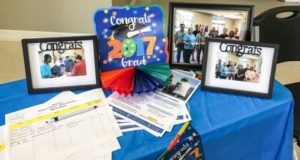 On Friday, our graduates celebrated the completion of their HVAC Gateway program certificate, including their NCCER certification, EPA 608 exam, TDLR HVAC Technician registration, OSHA 10 certification and First Aid/CPR Certifications. But we also celebrated their eight-week commitment and practice of punctuality, job etiquette, resume prep, interview practice, professional communication and team work.
On Friday, our graduates celebrated the completion of their HVAC Gateway program certificate, including their NCCER certification, EPA 608 exam, TDLR HVAC Technician registration, OSHA 10 certification and First Aid/CPR Certifications. But we also celebrated their eight-week commitment and practice of punctuality, job etiquette, resume prep, interview practice, professional communication and team work.
Per Skillpoint tradition, after receiving their graduation certificates, we asked family and friends to come to the stage, stand next to our graduates, and recite the following motto together:
“I affirm that the skills and knowledge gained through the Gateway Program will be utilized to the best of my abilities. I will help others in my community as I am able. I am a person of value and have gifts and talents to offer. I am proud of my accomplishments and look forward to the prosperity of my future.”

 As family members turned each graduate’s tassel, I thought about how strongly these students desire not just a job, but a career that they can be proud of and that will enable them to sufficiently support their families. I thought about how the graduates changed since starting on March 27th. Our shiest, youngest student confidently approached a HVAC employer after the ceremony, networking with her and sharing his career goals. One of our students with multiple offenses on his record had perfect attendance in our class and the Director of Probation showed up to graduation to support him.
As family members turned each graduate’s tassel, I thought about how strongly these students desire not just a job, but a career that they can be proud of and that will enable them to sufficiently support their families. I thought about how the graduates changed since starting on March 27th. Our shiest, youngest student confidently approached a HVAC employer after the ceremony, networking with her and sharing his career goals. One of our students with multiple offenses on his record had perfect attendance in our class and the Director of Probation showed up to graduation to support him.
I thought about our partner agencies such as Goodwill, Caritas, Heart of Texas Workforce Solutions, Esther’s Closet, Centex African American Chamber of Commerce, St. Alban’s Episcopal Church, Maker’s Edge and Communities In Schools that provided resources and support to our students and program in various ways during the class.
I looked around the room and saw employers at graduation who had also taken time to visit our class to share about their companies and what they look for in employees.
As our students thanked them for attending, they were not thanking a stranger and the employers were not just seeing a resume with potential barriers, they were seeing an individual committed to a better life for themselves and their family.
Waco is full of people of value that desire to work. We hope many of our students gain confidence to pursue further training at TSTC or MCC but we look forward to seeing how ALL of our students use Skillpoint Alliance Waco as a stepping stone to start the career and life path of their dreams.
*Special thanks to Rapoport Foundation and Cooper Foundation for their generous gifts and support. Skillpoint Waco will soon expand program offerings to include the Empower program, our 6-weeks digital proficiency classes provided in both Spanish and English and offered at no-cost.
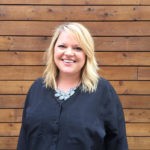 Mallory Herridge is the Waco Program Director for Skillpoint Alliance. She has lived in Waco since 2002 earning her Bachelor’s degree as well as Master of Social Work (2008) from the Diana Garland School of Social Work and Master of Divinity (2010) degree from Truett Seminary at Baylor University. Prior to joining Skillpoint Alliance, Mallory worked with the Baylor Texas Hunger Initiative utilizing her experiences in social work, community organizing and community building to further public-private partnerships and reduce hunger in Texas. Mallory also served as a Program Manager through Communities In Schools (CIS) creating unique partnerships and collaborations surrounding students with a community of support to success in school. Mallory enjoys being a new mom, and attending her husband’s Mentalism shows at the Hippodrome. Contact Mallory by phone at 254.732.0620 or by email at [email protected].
Mallory Herridge is the Waco Program Director for Skillpoint Alliance. She has lived in Waco since 2002 earning her Bachelor’s degree as well as Master of Social Work (2008) from the Diana Garland School of Social Work and Master of Divinity (2010) degree from Truett Seminary at Baylor University. Prior to joining Skillpoint Alliance, Mallory worked with the Baylor Texas Hunger Initiative utilizing her experiences in social work, community organizing and community building to further public-private partnerships and reduce hunger in Texas. Mallory also served as a Program Manager through Communities In Schools (CIS) creating unique partnerships and collaborations surrounding students with a community of support to success in school. Mallory enjoys being a new mom, and attending her husband’s Mentalism shows at the Hippodrome. Contact Mallory by phone at 254.732.0620 or by email at [email protected].
The Act Locally Waco blog publishes posts with a connection to these aspirations for Waco. If you are interested in writing for the Act Locally Waco Blog, please email [email protected] for more information.
By Josh Ritter
Here is the fundamental problem…most of us have no idea how to get to know our neighbors. The solution is both simple and far-reaching. We must learn to communicate well.
The biggest issue is that most people communicate through assumptions based on overly simplistic labels of identity. “Oh, you’re a Republican.” “Oh, you’re a liberal.” “Oh, you’re a Muslim.” “Oh, you’re a Christian.” Everyone thinks they know what these labels mean even though everyone’s identities are highly complex and vary from person to person. Not everyone who identifies as a Republican is only a Republican, and not everyone who is a Democrat is only a Democrat. We all have multiple identities that intersect and form who we are and who we become. Our identities shape how we interact with each other, and they inform the decisions that we make.
Part of the solution, then, is realizing that we are all complex, complicated people. The other part of the solution is realizing that living in community is messy, complicated, and difficult. We all want everyone to agree with us, but they often don’t. We all want everyone to believe the way that we do, but they often don’t. Should we just settle for agreeing to disagree? Or, is there more to communication and community than living within the compromises?
At work here is the root of communication and community – communion. Yes, communion…in the sense of “the sharing or exchanging of intimate thoughts and feelings, especially when the exchange is on a mental or spiritual level.” Living within community is a sacred journey with our neighbors. Living within community is a sharing and exchanging of thoughts and feelings, even when we disagree, which requires a level of trust that most of us simply do not extend to our neighbors, but it is this trust, this sacred vulnerability, that is precisely the necessary piece of the civic puzzle that we must fill in order to live in community and to neighbor well.
So how do we develop trust among strangers (that are also our neighbors)?
Here is a key insight that took me a long, long time to learn: When we lack the content and foundation of a trusting relationship, then we must rely on a form (or structure) of engagement that we can all trust. Said another way, when a trusting friendship does not exist in order for a difficult conversation among peers and neighbors to occur, then a dependable process of engagement must fill that space of trust. If we can’t find a process that we trust – a way to have a conversation that we trust – and we get stuck in disagreement about a controversial issue, then we will not be able to make well-reasoned decisions together due to mistrust and fear.
Fear is the number one factor that divides us. We are afraid that getting to know someone who believes differently from us will put our own beliefs in question and at risk. We are afraid that differences are a threat to our own identity. We react out of fear. We get angry, which is really just fear. We engage in fight or flight responses to those we fear. We try to distance ourselves from what we fear. The problem is that these moments of fear are precisely the instances that call for trust, risk, understanding, and vulnerability, but we haven’t learned that skill yet…how to disagree without being afraid, angry, fighting, or running. What we need to ask ourselves is what form or process can we use that we trust to help us dialogue and deliberate about difficult choices and hard conversations?
So what are these processes that we can trust?
There are many different processes of engagement to choose from, and they all focus on reasoning together as peers who live within a community. They all involve tested and well-researched ways to have healthy dialogue and deliberation, and they all involve a democratic skill set that we have largely abandoned for sound bites and a culture of polarization. The easiest way for a politician (or anyone) to get someone on their side is to make a complex issue into a simple either/or choice that is both polarizing and false. “You’re either with us or against us. It’s that simple.” Except that it’s not that simple, and over simplifying a complex issue doesn’t get us very far. “If I’m right, then you’re wrong.” That’s simple…but it’s not helpful. It doesn’t tell me why you are choosing one thing over another thing. It doesn’t tell me what the consequences of your decision might mean to me, my neighbor, and your neighbor.
With all that being said, what Baylor’s Public Deliberation Initiative hopes to accomplish at the Civic Life Summit on June 1-2 is a way to introduce all of our neighbors to multiple, different ways of engaging in healthy dialogue and deliberation. We want to bring all different types of people with all different types of beliefs together (yes, even the ones who don’t trust each other) to develop and to learn processes that we can trust to help us make decisions well. We want to help our broken communities heal through healthy conversation that is really a sacred act of communion. We all need a voice, and our work of civic engagement is the work of dialogue, deliberation, learning to trust, ending polarization, and practicing the art of sacred communion, which is also the act of sacred community building.
We must learn to make good decisions together for the common good of our communities if we want to make a difference in this world, and the Civic Life Summit is one crucial step in the right direction to fight injustice and to take right action together. Join with us, and step out of the fear…journey with us onto the challenging path of civic engagement that requires charity, trust, communication, and communion.
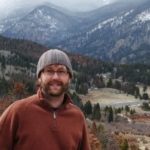 Dr. Josh Ritter is Assistant Director and Chaplain in the Department of Formation, Office of Spiritual Life, at Baylor University. He is Co-Leader of Baylor’s Public Deliberation Initiative and supervises all Cross Cultural Engagement programs in the Office of Spiritual Life. He is also Adjunct Faculty in the Baylor Interdisciplinary Core where he teaches World of Rhetoric.
Dr. Josh Ritter is Assistant Director and Chaplain in the Department of Formation, Office of Spiritual Life, at Baylor University. He is Co-Leader of Baylor’s Public Deliberation Initiative and supervises all Cross Cultural Engagement programs in the Office of Spiritual Life. He is also Adjunct Faculty in the Baylor Interdisciplinary Core where he teaches World of Rhetoric.
By Melissa Mullins
Have you heard of “citizen science”? Different definitions for this term exist but they typically say something like: “Citizen science is scientific work undertaken by members of the general public, often in collaboration with or under the direction of professional scientists and scientific institutions” or one I like “projects in which volunteers partner with scientists to answer real-world questions” (Cornell Lab of Ornithology, a leader in citizen science). Even if you didn’t call it citizen science, you probably know someone (maybe you) who has participated in a citizen science project.
Although the term citizen science is relatively new, amateur scientists (who may have had no formal training in science) have contributed to scientific discovery throughout history, and continue to do so today. They do so because of a love of knowledge and a desire to learn about the natural world. In fact, many great early scientists had other occupations and science was something they pursued in their leisure time. Today, many professional scientists “crowdsource” data collection to help them accomplish tasks that otherwise might be difficult or impossible.
Citizen science has been practiced in Waco since at least 1957 through people participating in the annual Audubon Society Christmas Bird Count, which this year entered its 117th year. Researchers have used data from the Christmas Bird Counts in over 200 peer-reviewed papers to answer questions about bird community ecology, distribution and population dynamics. This year I participated in one of the two counts held locally, and it was great fun. No experience necessary!
Both the City of Waco and Baylor University support the Texas Stream Team which has trained citizen science water quality monitors around the state for over 25 years. The City provides kits and resources for volunteers concentrated on monitoring sites in the streams and rivers that feed Lake Waco, our source of drinking water, and Baylor students monitor sites around the Baylor campus. The data is entered into a statewide database that is accessible to all.
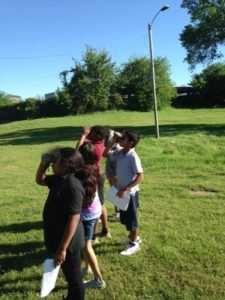 Participation in citizen science is not limited to adults! This spring, students at Indian Spring Middle School and Dewey Recreation Center began participating in Science Action Clubs, Birds in Your Schoolyard. They are learning about birds weekly and collecting bird counts which will be entered into the Ebird database. The Cameron Park Zoo is also hosting this program. On World Water Day March 22, 300 8th graders at Cesar Chavez Middle School measured water quality from the Brazos River, Waco Creek, and Lake Waco and their data will be entered into the EarthEcho Water Monitoring Challenge database.
Participation in citizen science is not limited to adults! This spring, students at Indian Spring Middle School and Dewey Recreation Center began participating in Science Action Clubs, Birds in Your Schoolyard. They are learning about birds weekly and collecting bird counts which will be entered into the Ebird database. The Cameron Park Zoo is also hosting this program. On World Water Day March 22, 300 8th graders at Cesar Chavez Middle School measured water quality from the Brazos River, Waco Creek, and Lake Waco and their data will be entered into the EarthEcho Water Monitoring Challenge database.
Citizen science is a great way for people, regardless of age, background or education, to be more involved in scientific endeavors that interest them. Science benefits all of society, and the cost to fund scientific research is largely borne by the public, but those involved directly in scientific research have often been a fairly narrow swath of society. Now more than ever in the face of a changing climate (both literally and politically) science can use champions among the public. Will you be one?
Want to participate or learn more?
- Consider becoming a Waco area Texas Master Naturalist http://txmn.org/heartoftexas/
- Participate in Waco area Christmas Bird Counts http://www.centexaudubon.org/
- Join Texas Stream Team http://www.meadowscenter.txstate.edu/Service/TexasStreamTeam.html
- Start a Science Action Club http://www.calacademy.org/science-action-club-sac
- Participate in the EarthEcho Water Monitoring Challenge http://www.worldwatermonitoringday.org/
To learn more about the diversity of citizen science projects that may interest you, try visiting sites like scistarter.com or citizensciencealliance.org.
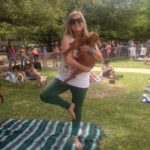 Melissa Mullins is an aquatic scientist who coordinates education and outreach at Baylor’s Center for Reservoir and Aquatic Systems Research. She is a Baylor alum (M.S. Environmental Biology ’95) and is on the Board of the Informal Science Education Association of Texas which focuses on promoting science learning outside the classroom. She loves goats and yoga and recently visited the Nile River in Uganda as part of a Baylor trip. She believes that a vibrant scientific community that includes the public in its work is a fundamental underpinning of a democratic society.
Melissa Mullins is an aquatic scientist who coordinates education and outreach at Baylor’s Center for Reservoir and Aquatic Systems Research. She is a Baylor alum (M.S. Environmental Biology ’95) and is on the Board of the Informal Science Education Association of Texas which focuses on promoting science learning outside the classroom. She loves goats and yoga and recently visited the Nile River in Uganda as part of a Baylor trip. She believes that a vibrant scientific community that includes the public in its work is a fundamental underpinning of a democratic society.
By Russell Ritchey
We moved to Waco in 1990 and raised four beautiful children born and raised on what to me is now hallowed ground. My wife, Angie, passed away last year, God rest her soul. But she poured her heart and soul into our kids. It was so beautiful. (She was actually born in Waco in 1964, her dad, Ira Thompsom, being a Methodist Minister at that time). I penned a poem (actually a song) in 2003 as I pondered the ways of God, and life, as I listened to the cicadas in the lone oak tree above, and in Cameron Park all around, cradling my newborn son, Wesley, in my arms, nicknamed then as ‘Bug’. So now, after all these years, I want to share how the summer sound of the cicada has impressed upon me a strong and enduring memory. I hope you find my poem (song) a pleasant and pleasurable read and that it will compliment the melody of the cicada bug in your Waco trees this summer, and all the summers to come, and ultimately, in your many memories.
Here’s to my children, and especially my ‘bug’, and to my late wife Angie.
————
That Cicada Summer Love Song
Cicada, cicada, singing that summer song,
Cicada, cicada, singing all summer long.
The sound of summer fills the air,
Gently soothing every care.
Cicada, cicada.
The sun is shining bright outside,
It’s wonderful to be alive.
And now and then there is a breeze,
Whispering sweet memories.
Cicada, cicada.
So many summers from the past,
Oh how I wished each one would last
Just like this moment here with you,
I hope it is a memory too.
Cicada, cicada.
As summers come and summers go,
I hope your love for me will grow.
And when you hear them in the tree,
I hope you will remember me.
Cicada, cicada.
The sound of summer fills the air,
Gently soothing every care.
Cicada, cicada …
———–
Tempo: Grave – very slow (25–45 bpm) Just like the ‘dog days of summer’.
Use a guttural vibrato on the ‘ca’ in ci-ca-da using the vibrations of the epiglottis. Hold ca——- for about three seconds (like gargling with water but with air instead) to emulate the sound of the cicada. Pitch goes from low to a little higher to fading out (just like the sound of the cicada).
Interestingly, Cicadas have a two to seventeen year life cycle, depending on the species. Their familiar sounds during the ‘dog-days’ of summer are sometimes pleasant, sometimes annoying (depending on your frame of mind). However, the cicada’s time in life is as brief as a midsummer’s night, and it comes and goes before you know it.
Just like the wondrous moments of youth, which swiftly pass along, and then are gently locked away in the never changing realm known only as memories. May it forever be that we only have pleasant ones, and all that may be otherwise be gently washed away by the sound of the cicada.
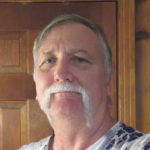 Russell Ritchey may not be a native son of Waco Texas, but how close can you get? His wife, Angie, of 27 years (God rest her soul) was born in Waco, 1964. And their four children, Nathan, Le’Anna, Kristina, and Wesley all breathed their first air in the Heart of Waco on Texas soil. Russell took a job at L-3 in 1990 (then Chrysler Technologies) and has enjoyed his home in Waco ever since, and his family that brought him there, and his job at L-3 that made it possible.
Russell Ritchey may not be a native son of Waco Texas, but how close can you get? His wife, Angie, of 27 years (God rest her soul) was born in Waco, 1964. And their four children, Nathan, Le’Anna, Kristina, and Wesley all breathed their first air in the Heart of Waco on Texas soil. Russell took a job at L-3 in 1990 (then Chrysler Technologies) and has enjoyed his home in Waco ever since, and his family that brought him there, and his job at L-3 that made it possible.
The Act Locally Waco blog publishes posts with a connection to these Aspirations for Waco. If you are interested in writing for the Act Locally Waco Blog, please email [email protected] for more information.
By Melody McDermitt
Please don’t stop bringing Meals on Wheels to me… I’m not sure how I will make it without you,” has been the most common call we have received since the media attention focused on Meals on Wheels funding. We are reassuring our clients that their meal service will continue and making sure our donors and volunteers know how important they are to our ability to serve.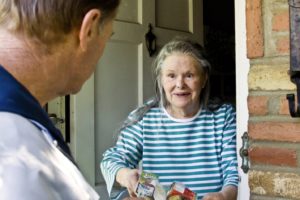
For fifty years our agency has served the community’s most vulnerable populations and because of our strong community support, we will be here to continue caring for the people of Waco, McLennan, Hill and Falls Counties.
Below is information about our budget, program, and how you can help:
- We receive approximately 45% of our funding from federal and state sources. Most of the funds are through the Older Americans Act, administered by the US Department of Health and Human Services. We match these funds with private dollars to serve people meals. The combination of federal, state, and private funding is a great example of successful public-private partnership.
- We have a waiting list of 87 people. Because funding is limited, we have had to start a waiting list. In January we had a list of 50 people, but this list is climbing due to increased need. We need community support to stop the wait and start the meals.
- The average age of our clients is 80. If you were to deliver meals, you would most likely meet an eighty year old woman, who is living independently and alone.
- Growing over time. Eight years ago, Meals on Wheels served approximately 650 people daily. Today, we prepare approximately 1,000 meals daily, the majority of these meals are delivered to client’s homes and the rest are prepared for senior centers.
- Meals on Wheels is a compassionate program, but it’s also a fiscally responsible investment with proven success. It costs us $6/day to produce and deliver a meal. Research shows our program keeps seniors healthier, allowing them to stay in their homes instead of a Medicaid nursing home ($150/day) or being hospitalized for malnutrition and dehydration ($1,500/day). We can feed a senior for one year for approximately the same cost as one day in a hospital.
- You can help by volunteering! For every route a volunteer delivers, we are able to save enough money to feed a senior for a week. We love volunteers who can deliver weekly, monthly, or during holidays. To sign up, go to our website mealsandwheelswaco.org.
- You can help by donating! For just $30, you will feed a senior for a week. For $120, you’ll feed one new client for a month. Every gift is appreciated and needed. Please consider a monthly gift. Donations can be made at mealsandwheelswaco.org/donate or mail to Meals on Wheels, 501 W. Waco Drive, 76707.
- Share your Meals on Wheels story with friends and the community. As a client, volunteer, or donor, you are our best advocate. Please share your experience – in person and on social media. Tell your story or share ours. Our Facebook page – MealsandWheelsWaco and Twitter – MealsWheelsWaco – are great places to leave your comments.
If you’d like additional information or have a story to share with us, please contact me at [email protected] . Thank you for your support!
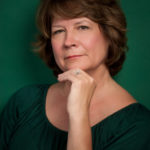 Melody McDermitt is the Executive Director of Meals and Wheels. She came to the agency in 1980 to work with the rural Senior Center Program. She came to Meals & Wheels from the Area Agency on Aging where she worked with programs in a six county area. Prior to her work in Waco Melody was an Extension Home Economist in Oklahoma. She has a degree in Home Economics and has done graduate work in Public Administration. Melody’s gifts are for building a team of employees who value older adults, and work to help older adults be seen as valued members of the community.
Melody McDermitt is the Executive Director of Meals and Wheels. She came to the agency in 1980 to work with the rural Senior Center Program. She came to Meals & Wheels from the Area Agency on Aging where she worked with programs in a six county area. Prior to her work in Waco Melody was an Extension Home Economist in Oklahoma. She has a degree in Home Economics and has done graduate work in Public Administration. Melody’s gifts are for building a team of employees who value older adults, and work to help older adults be seen as valued members of the community.
The Act Locally Waco blog publishes posts with a connection to these aspirations for Waco. If you are interested in writing for the Act Locally Waco Blog, please email [email protected] for more information.
By Robin Wilson
Students enrolled in the Advancement Via Individual Determination (AVID) classes in Waco Independent School District (ISD) have increased over 200%! In the school year 2014-2015 just fewer than 400 students were enrolled in the Waco ISD AVID classes. The current school year has AVID enrollment over 800 students in the 7th -12th grade classrooms.
What is an AVID classroom?
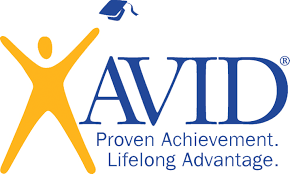 The AVID classroom focuses on developing students’ critical thinking, literacy, and math skills in all content areas. Academic behaviors, including organization, time management, and goal setting, are also taught as part of the AVID System. The goal of AVID is to develop and strengthen these skills and to empower students to take responsibility for their own learning and to close the achievement gap by preparing all students for college and other postsecondary opportunities. It assists students in developing confidence and encourages them to take academic risks. AVID provides a personalized learning environment that focuses on individual needs and creates opportunities for students to develop meaningful social networks and relationships. The AVID elective class also provides test-taking skills, assistance in preparing for and completing the college application process, and cooperative study/tutoring groups.
The AVID classroom focuses on developing students’ critical thinking, literacy, and math skills in all content areas. Academic behaviors, including organization, time management, and goal setting, are also taught as part of the AVID System. The goal of AVID is to develop and strengthen these skills and to empower students to take responsibility for their own learning and to close the achievement gap by preparing all students for college and other postsecondary opportunities. It assists students in developing confidence and encourages them to take academic risks. AVID provides a personalized learning environment that focuses on individual needs and creates opportunities for students to develop meaningful social networks and relationships. The AVID elective class also provides test-taking skills, assistance in preparing for and completing the college application process, and cooperative study/tutoring groups.
AVID Elementary
Waco ISD offers AVID at each of the middle school and high school campuses. AVID has also extended to four of the WISD elementary campuses. What does AVID look like at the elementary campus? AVID elementary is campus-wide initiative with a focus on developing organizational skills for all students, instilling student success skills, creating a college going culture, inspiring belief in academic rigor and success, providing professional development for teachers, and providing students a smoother transition to the next school.
Waco ISD AVID student accomplishments
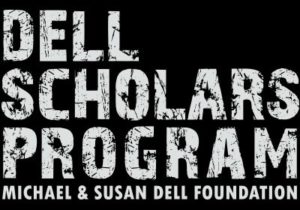 The Dell Scholars program, an initiative of the Michael & Susan Dell Foundation, recognizes students who have overcome significant obstacles to pursue their educations. Waco ISD is proud to announce three winners and two of the students are AVID students. Dell Scholars receive $20,000 each to complete their higher education over the course of six years. Each student is also provided technology, a private scholar networking community, resources, and mentoring to ensure they have the support needed to achieve their college degrees.
The Dell Scholars program, an initiative of the Michael & Susan Dell Foundation, recognizes students who have overcome significant obstacles to pursue their educations. Waco ISD is proud to announce three winners and two of the students are AVID students. Dell Scholars receive $20,000 each to complete their higher education over the course of six years. Each student is also provided technology, a private scholar networking community, resources, and mentoring to ensure they have the support needed to achieve their college degrees.

- University High School AVID student and Dell Scholar Winner – Sammy Ortega Rangel; future college: Texas A&M
- University High School student and Dell Scholar Winner – Alexandra Castillo; future college: University of Texas at Arlington
- Waco High School AVID student and Dell Scholar Winner – Khristian Allen; future college: University of Texas
Other Waco ISD Student Accomplishments:
- Over 90% of the Waco High AVID Seniors were accepted to 4-year universities in the school year ending June 2016. June 2017 will be the first AVID Senior class for University High School.
- Increased enrollment of AVID students in advanced placement or dual-credit courses from 2014-2015 to the current school year.
- Increased grade point average (GPA) for AVID students after enrolling in the AVID class.
- AVID students out perform non-AVID students on all state assessments for the 2015-2016 school year.
AVID Professional Development for Teachers
AVID has not only been a great success story for our students but has provided meaningful, research-based instructional professional development for teachers. AVID professional development emphasizes the training of teachers and other school professionals in the use of specific instructional strategies focused on writing, inquiry, collaboration, and reading. These strategies are taught in a three-day summer conference or through additional trainings. Campuses provide additional AVID professional development throughout the school year led by the AVID district director, campus coordinator, elective teacher and/or teachers who attended summer institute.
Last summer Waco ISD had over 100 teachers attend the AVID Summer Institute Conference in San Antonio. This year there will be over 120 teachers attending the AVID Summer conference.
AVID School-wide
Waco ISD AVID provides a structure to close the achievement gap that exists between groups of students. The WISD AVID elective class provides a school-based network that not only supports academic development but also provides information about issues directly related to postsecondary education. Although the AVID elective class only serves 10-15% of the campus population, the goal is to provide all students access to the core AVID concepts such as organizational and study skills, enrichment and motivational activities, and college preparation through the implementation of AVID school-wide.
Think you might be interested in working with AVID students? – Each year we hire individuals to be AVID tutors to work with our middle school and high school students. Starting salary is $12.50 an hour for college students and up to $22 for retired teachers. Hours are flexible. Recruitment for the 2017-2018 AVID tutors begins June 1, 2017. If interested, please email Robin Wilson at [email protected].
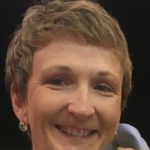 Robin Wilson is currently completing her third year as the AVID District Director for Waco ISD. Before becoming the AVID District Director, she served as a campus principal in the district for eight years. She is also currently a third year PhD student at Baylor University in the Educational Psychology Department. Her focus is college readiness and child development. She plans to graduate in May 2018.
Robin Wilson is currently completing her third year as the AVID District Director for Waco ISD. Before becoming the AVID District Director, she served as a campus principal in the district for eight years. She is also currently a third year PhD student at Baylor University in the Educational Psychology Department. Her focus is college readiness and child development. She plans to graduate in May 2018.
The Act Locally Waco blog publishes posts with a connection to these aspirations for Waco. If you are interested in writing for the Act Locally Waco Blog, please email [email protected] for more information.
By Jessica Padrón Meehan, Ed.D
Each semester I have my students journal about their experiences with English learners. As one can imagine, they have a range of experiences. Inevitably, there is an individual that expresses uncertainty about being in my ESL/Bilingual Foundations course. The students disclose that this uncertainty comes from their lack of knowing another language. They express things like, “I don’t know Spanish and I am nervous that I will not do well in this class.” I reassure my students that they do not need to know another language in order to be successful in the course. Only students seeking bilingual certification need to know another language. Remarkably, these students have been a part of the American educational system their whole lives and their semester with me will be the first time they will truly understand the differences between ESL and bilingual instruction. These students are not alone. There are parents, grandparents, and even some educators that have never experienced ESL or bilingual classes for themselves nor have they ever had a need or a reason to explore them. If this is true, then these same individuals are unaware that bilingual education is not just for English learners but can be for them too!
There is a distinct difference between English as a Second Language (ESL) and bilingual education. An ESL program uses specialized strategies with English instruction and focuses on the development of listening, speaking, reading, and writing skills. This instruction is provided by an ESL certified teacher and is done either in a homeroom or in a pull out scenario. This type of program can be found in local school districts such as Robinson ISD or China Spring ISD. A bilingual program, on the other hand, utilizes both English and the students’ native language to teach English as well as all of the other subject areas. This allows for students to gradually learn English while learning critical academic knowledge in their native language. A bilingual individual that is bilingual certified delivers this instruction in a self-contained classroom. In the Central Texas area, the students’ native language is typically Spanish. However, this is not always the case. In other cities across the United States, bilingual programs may include native languages such as Cantonese, Korean, or Mandarin. In Texas, Ysleta ISD in El Paso offers a dual language bilingual program that adds a third language to the students’ repertoire. At the Alicia Chacón International School students learn English, Spanish, and can learn Russian, Chinese, Japanese, or German as a third language.
Historically, bilingual education was initially implemented to help transition English learners into mainstream English speaking classrooms. Over the years, best practices have been established, programs have progressed, and philosophies have evolved. Presently, there are a variety of bilingual programs that a school district can choose to implement. Early exit transitional programs, for example, move students into mainstream English classrooms in the early grades. The goal of this type of program is assimilation and is viewed as a subtractive program, where a new language replaces the old one. Locally, this type of bilingual program can be found in Midway ISD and in Waco ISD.
A school district can also choose to provide English learners with a late exit developmental program that transitions students in the later elementary grades. A developmental program encourages the preservation of the students’ native language. The aim of this type of program is bilingualism and biliteracy. A developmental program is viewed as an additive program, where a new language is added to the students’ native language without replacing it. Locally, there are no school districts in the Greater Waco area that implement this type of program.
A third alternative is for a school district to implement a two-way dual language program. This type of program differs from the others in several ways. First, the program is not designed just for English learners, but for native English speakers as well. These programs have mixed populations in the classroom, where native English speakers learn another language, and English learners acquire English. Two populations are immersed in another language for a portion of their school day. In addition, the goal of a dual language program is not to transition either population into one particular language. Rather, it is designed to develop bilingual and biliterate individuals. Schools in Dallas, Austin, Houston, and in South Texas have successfully implemented this type of program. In the Central Texas area, a dual language program can be found in Temple ISD at the Hector P. Garcia Elementary School.
While I was a teacher in Austin, I had the opportunity to work in a dual language program. Classrooms contained mixed student populations where every child in the school was learning a new language. At this school, value was placed on every student’s background. As a positive by-product of the program, students developed empathy, dependency, and respect towards their classmates. Every child experienced being the language learner while at the same time, every child was considered a valued asset in the classroom. Students were dependent on one another when their native language was not being spoken. In addition, students learned to respect each other and developed friendships with classmates of different ethnic backgrounds. I count myself fortunate to have been a part of such a positive learning environment.
With the voucher system encroaching on the public school system, a two-way dual language program could be an attractive selling point to local constituents. It would behoove local school districts to explore the option. In the state of Texas, school districts must implement a bilingual program when there are 20 or more English learners in any language classification in the same grade level district-wide. If a school district must invest time and money into a bilingual program anyway, why not utilize the opportunity to attract monolingual English speaking families and implement an additive program for everyone. Currently, there are no private, public, charter, or magnet schools in the area that provide this service.
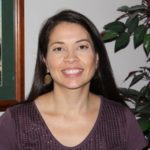 Jessica Padrón Meehan, Ed.D., is an Assistant Professor in the Department of Curriculum and Instruction at Tarleton State University. Dr. Meehan teaches language and literacy foundations and methods courses. Prior to this, she worked with the Waco Independent School District serving elementary English learners. She is an advocate of bilingual education and of culturally relevant instructional methods. She lives in Waco with her husband, Todd, and their two children, Jack and Luca.
Jessica Padrón Meehan, Ed.D., is an Assistant Professor in the Department of Curriculum and Instruction at Tarleton State University. Dr. Meehan teaches language and literacy foundations and methods courses. Prior to this, she worked with the Waco Independent School District serving elementary English learners. She is an advocate of bilingual education and of culturally relevant instructional methods. She lives in Waco with her husband, Todd, and their two children, Jack and Luca.
The Act Locally Waco blog publishes posts with a connection to these aspirations for Waco. If you are interested in writing for the Act Locally Waco Blog, please email [email protected] for more information.
By Lindy Reamer
What is the most iconic kid business there is? A lemonade stand of course! Lemonade stands are fun…but that’s not all. Just think about everything a kid is learning when she puts together and runs a lemonade stand…
Where do great businesses come from? From people who have a dream and the business savvy to bring that dream into reality. Where do those people learn how to bring their business dreams to life? For some of them, it starts when they are kids. And for some of those kids it starts with that lemonade stand! The goal of Lemonade Day is to grow the next generation of entrepreneurs by using lemonade stands to start kids down the road of understanding how business works. Plus…it’s fun!
“Lemonade Day” is a strategic lesson-based program that walks kids from a dream to a business plan, while teaching them the same principles required to start any big company. Inspiring kids to work hard and make a profit, they are also taught to spend some, save some and share some by giving back to their community. Since its launch in 2007 in Houston, Texas, Lemonade Day has grown from serving 2,700 kids in one city to 1 million children across North America. Lemonade Day sparks the spirit of entrepreneurship and empowers youth to set goals, work hard, and achieve their dreams. Lemonade Day started by Houston entrepreneur and philanthropist Michael Holthouse in 2007. It has since grown to over 50 cities nationwide…including Waco! Lemonade Day Waco will be Saturday, May 6th 2017
I want my kids to participate in Waco Lemonade Day! What do we do?
Signing up to participate in Lemonade Day is easy and it’s free! The first step is to register for the Lemonade Day on-line “business school” called “Lemonopolis.” Register today at https://lemonadeday.org/waco/.
Once you and your child register, you can help your budding entrepreneur work through a series of fun, interactive lessons where he/she will learn how to create a budget, set profit-making goals, serve customers, and repay investors …among other important business skills.
Then, on May 6, it’s “go time.” Launch your Lemonade stand along with the other Lemonade Day participants in Waco. That’s it…all there is to it is to do it! For the kids, one of the best parts is that after covering their expenses and paying back their investor, they can keep what they earn! The Lemonade Day program encourages them to spend some of their profit on something they enjoy or want, but also to save some and share some. Here’s a link to the Lemonade Day National website that’s full of ideas and information: Lemonadeday.org. (Just remember that while National Lemonade Day is May 7, Waco Lemonade Day is May 6!)
Our church/organization/club works with kids and we would love to help them participate in Lemonade Day! What do we do?
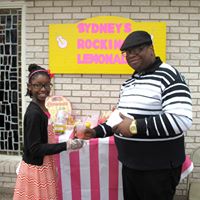
Lemonade Day is already a tradition at Toliver Chapel Baptist Church here in Waco!
Terrific! We have resources and ideas for groups who want to work with kids on Lemonade Day. Contact me, Lindy Reamer, at [email protected] or by calling 254-710-8334. I’ll help you get going!
I’ve heard Lemonade Day in other cities is a big deal! How do we make it a big deal in Waco?
With Lemonade Day the sky is really the limit! Some communities have rallied around their kids in an inspiring way and made Lemonade Day a big event for the whole community. Here’s a video from Lubbock Lemonade Day 2016 that will give you a “taste” of how great Lemonade Day can be. Despite terrible weather, the kids and the community really came through. Watch out: Important life lessons ahead…
We are in the early stages of growing Lemonade Day in Waco and there are lots of ways everyone can get on board!
Right now Local sponsors are needed to offset program and material costs so all youth are able to participate free. To sign up to be a sponsor contact me at [email protected] or by calling 254-710-8334.
We also need people who want to help promote Lemonade Day, and property owners who are willing to let kids have their stands on your property.
Lemonade Day is an annual event, and while 2017 Lemonade Day is almost here…it’s already time to start thinking about Lemonade Day 2018 and beyond. If you think this is a terrific idea for Waco and you want to help get it rolling in a big way…we need you! Contact me at [email protected] or by calling 254-710-8334 and we will get you in the loop and put you to work!
Most importantly…if you want Lemonade Day to be a big deal in Waco, and if you think it’s exciting and important to help our kids learn what it takes to run a business… get out there a buy some Lemonade on May 6!
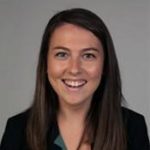 Lindy Reamer is the Coordinator of Special Projects for the Division of Constituent Engagement at Baylor University. Her work includes assisting with Baylor’s Continuing Education program and implementing and attending events for the Division of Constituent Engagement. One of her special projects includes working on Lemonade Day Waco. She is a recent graduate of Baylor University and loves the Waco community.
Lindy Reamer is the Coordinator of Special Projects for the Division of Constituent Engagement at Baylor University. Her work includes assisting with Baylor’s Continuing Education program and implementing and attending events for the Division of Constituent Engagement. One of her special projects includes working on Lemonade Day Waco. She is a recent graduate of Baylor University and loves the Waco community.
by Matt Doyen
I love Harry Potter. My friends love Harry Potter. We watch the movies, listen to the audiobooks, and read the tattered paperbacks. We are so magically spellbound by the series not only because of our (continued-into-adulthood) desire to attend Hogwarts, but also because of the way that Rowling shares her story. She is a magnificent storyteller and believes that “there’s always room for a story that can transport people to another place.” We are transported when we hear her story, but also when we grasp our wand replicas, flick them in the air, and pronounce “Wingardium Leviosa.”
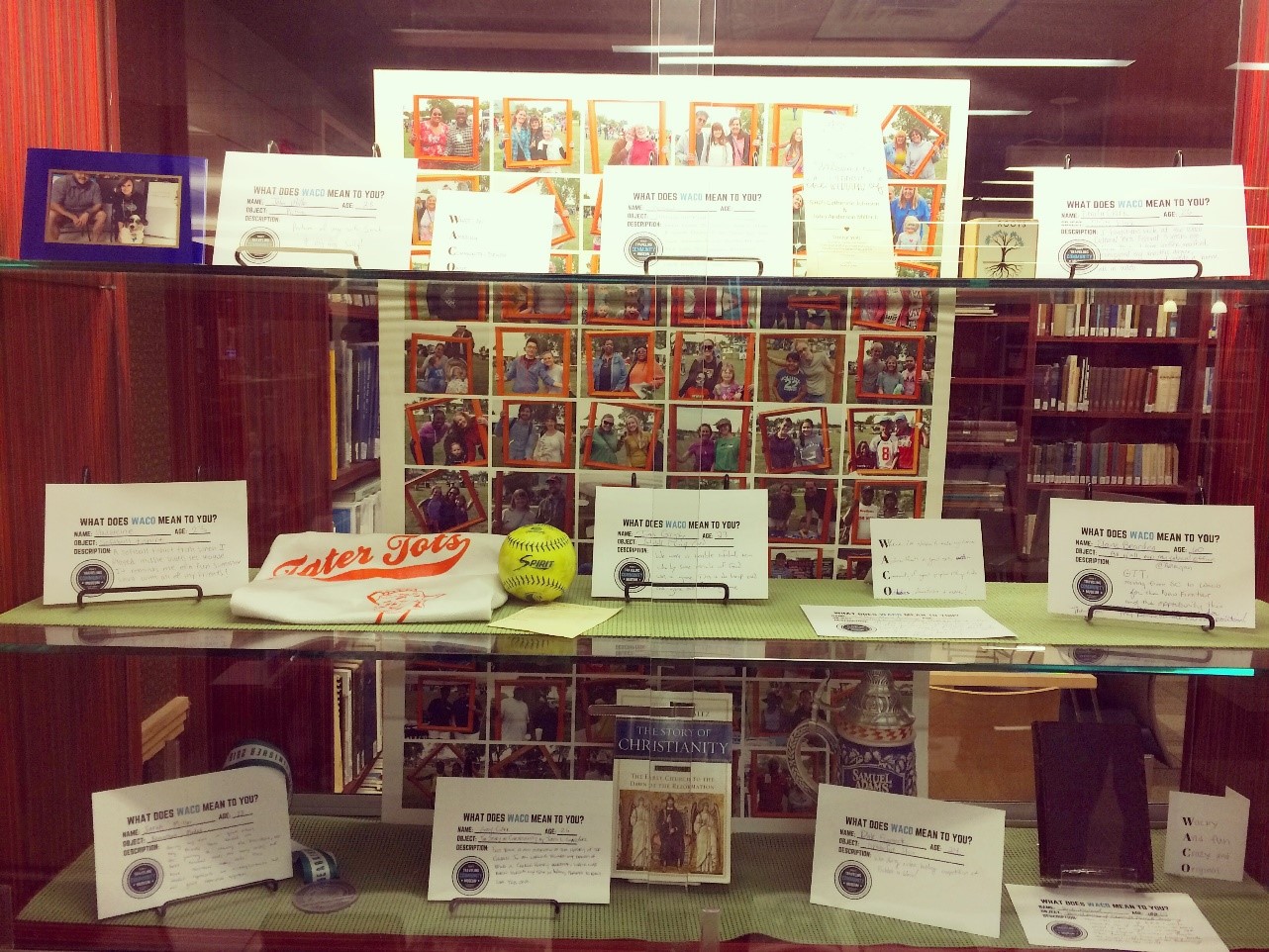 Certain objects, like a wand, or a medal, or a toy, are so powerful that they can tell a story in a few sentences that can be just as emotional as a seven book saga. They can make us make us laugh, make us cry, and make us think. The best part is that while not everyone has a wizarding world in their mind, everyone does have a treasured object in their possession. Susan Mullaly, former assistant professor of art at Baylor, emphasized this point in her book What I Keep. In it, members of the Church Under the Bridge are photographed with an item that they have kept safe against all odds. It is overtly simple, but extremely moving. For the past couple of months, the Museum Association of Waco has been attempting to temporarily collect and display more of our cherished objects and to share the stories that are connected to them. The concept is called a pop-up museum and its success is up to us.
Certain objects, like a wand, or a medal, or a toy, are so powerful that they can tell a story in a few sentences that can be just as emotional as a seven book saga. They can make us make us laugh, make us cry, and make us think. The best part is that while not everyone has a wizarding world in their mind, everyone does have a treasured object in their possession. Susan Mullaly, former assistant professor of art at Baylor, emphasized this point in her book What I Keep. In it, members of the Church Under the Bridge are photographed with an item that they have kept safe against all odds. It is overtly simple, but extremely moving. For the past couple of months, the Museum Association of Waco has been attempting to temporarily collect and display more of our cherished objects and to share the stories that are connected to them. The concept is called a pop-up museum and its success is up to us.
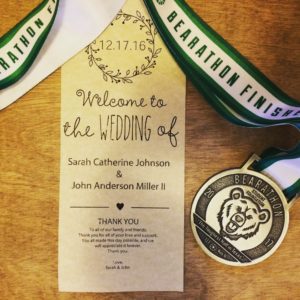 Our first pop-up museum was in the Local History Room at the Waco-McLennan Central Library on Austin Avenue. The library’s theme for the month was You Are Where You Live so we asked participants to answer a simple question with an object: What does Waco mean to you? We received eleven extraordinary objects that were displayed for two weeks. Unassuming things like a wedding invitation and a medal told the adventurous stories of meeting new friends and conquering new endeavors. The proud owner of a Bearathon medal wrote, “During my time in grad school, my friends have bonded over our journey to running the Bearathon. We have trained hard, run many miles, and have consumed many carbs! This medal represents our accomplishments and our great experiences together.” Another participant who brought a wedding invitation shared a similar story. “When I came to Texas, I didn’t know a single person. It was scary. But then some amazing people invited me into their lives. This wedding invitation represents one of the many memories I have made with them.”
Our first pop-up museum was in the Local History Room at the Waco-McLennan Central Library on Austin Avenue. The library’s theme for the month was You Are Where You Live so we asked participants to answer a simple question with an object: What does Waco mean to you? We received eleven extraordinary objects that were displayed for two weeks. Unassuming things like a wedding invitation and a medal told the adventurous stories of meeting new friends and conquering new endeavors. The proud owner of a Bearathon medal wrote, “During my time in grad school, my friends have bonded over our journey to running the Bearathon. We have trained hard, run many miles, and have consumed many carbs! This medal represents our accomplishments and our great experiences together.” Another participant who brought a wedding invitation shared a similar story. “When I came to Texas, I didn’t know a single person. It was scary. But then some amazing people invited me into their lives. This wedding invitation represents one of the many memories I have made with them.”
 Our second pop-up museum was at the Ball Performing Arts Center for McLennan Community College’s Hansel and Gretel opera performance. To relate to the theme of the opera, we asked participants to bring an item that reminded them of a childhood memory. We received seven very special objects and their stories. Many of the objects referenced some of the most important people that we have in our lives: our grandparents. One participant wrote about a dog fence topper that “was mounted on the fence in my grandparent’s backyard. We spent so much time playing in their backyard growing up. When they died and we sold their house, each grandkid kept one of these dogs.” The owner of a Rubik’s Cube mimicked that common sentiment. “I got my first Rubik’s Cube from my grandmother and ‘solved’ it by taking off the stickers and putting them in the right spots. Later, I learned how to solve one. Today, I still love doing puzzles!”
Our second pop-up museum was at the Ball Performing Arts Center for McLennan Community College’s Hansel and Gretel opera performance. To relate to the theme of the opera, we asked participants to bring an item that reminded them of a childhood memory. We received seven very special objects and their stories. Many of the objects referenced some of the most important people that we have in our lives: our grandparents. One participant wrote about a dog fence topper that “was mounted on the fence in my grandparent’s backyard. We spent so much time playing in their backyard growing up. When they died and we sold their house, each grandkid kept one of these dogs.” The owner of a Rubik’s Cube mimicked that common sentiment. “I got my first Rubik’s Cube from my grandmother and ‘solved’ it by taking off the stickers and putting them in the right spots. Later, I learned how to solve one. Today, I still love doing puzzles!”
Our next pop-up museum will be held on Saturday, April 22 at the Farmer’s Market. Theme will be PLAY! We are inviting everyone to bring an item that can be played with and enjoyed by others. In the end, objects can make it easier to share personal stories and to connect with foreign strangers (and, if you’re Lord Voldemort, to live forever). We used to proudly share them during kindergarten show-and-tells, but have since had fewer opportunities to do so. The Museum Association of Waco is trying to change that through the hosting of its pop-up museums. We hope to see you at one soon with your precious object and your amazing story!
 Matthew Doyen is the coordinator of the Museum Association of Waco’s Traveling Community Museum. He will (hopefully) graduate from Baylor University in May with an MA in Museum Studies. When not looking for his next paying adventure, he enjoys exploring Waco’s food scene and hanging with his majestic dog, Tex.
Matthew Doyen is the coordinator of the Museum Association of Waco’s Traveling Community Museum. He will (hopefully) graduate from Baylor University in May with an MA in Museum Studies. When not looking for his next paying adventure, he enjoys exploring Waco’s food scene and hanging with his majestic dog, Tex.
The Act Locally Waco blog publishes posts with a connection to these aspirations for Waco. If you are interested in writing for the Act Locally Waco Blog, please email [email protected] for more information.
By Rolando Rodriguez Soto
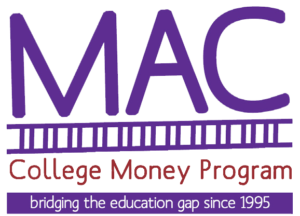 For over 20 years, the MAC College Money Program, a program of Waco Foundation, has played a significant role in the Waco community to advocate for the attainability of a college education for all McLennan County students regardless of their financial situation.
For over 20 years, the MAC College Money Program, a program of Waco Foundation, has played a significant role in the Waco community to advocate for the attainability of a college education for all McLennan County students regardless of their financial situation.
The MAC Grant, offered to low-income McLennan County high school students, pays for tuition up to $1,000 each semester at either McLennan Community College or Texas State Technical College if other financial aid is not enough to cover tuition.
The deadline for the MAC Grant is May 1st, and you must apply during your senior year of high school. You can find the application on our website or with your high school counselor.
Once accepted into our program, students are then eligible to apply for the MAC 3rd and 4th Year Transfer Scholarship of $5,000, which can be used at any four-year college. Even if you are not planning to attend MCC or TSTC, the MAC Grant could mean a scholarship opportunity later on in your college career, but you have to apply for the MAC Grant as a senior in high school to be considered.
Every year, we welcome over 500 students into the MAC Program as high school seniors to receive the MAC Grant. Students from our program go on to become health professionals, educators, business leaders and many other professions with over 50 percent staying in Waco to launch their careers.
In this article, we will take a look back at over 20 years of achievement through three MAC students all in different stages of life.
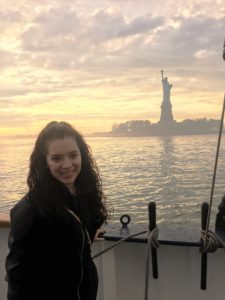 Alondra Castillo
Alondra Castillo
2016 Baylor/MAC Program Full-Tuition Scholarship Recipient
Alondra Castillo, with a 4.0 GPA at MCC, transferred to Baylor University with the Baylor and MAC Program’s collaborative full-tuition scholarship in 2016. She is now majoring in biology pre-med with plans to become a doctor with a specialization in gynecology.
“Seeing my family members deliver their babies and working as a certified nursing assistant at Hillcrest inspired me to pursue gynecology,” Alondra said. “I wasn’t able to directly assist with the labor and delivery, but I did work with the neonatal intensive care unit, and that really sparked an interest in me.”
For Alondra, Baylor wouldn’t have even been a possibility without the full-tuition scholarship. At Baylor, she has the opportunity to take more rigorous courses, volunteer more in the community through the American Medical Student Association and have an increased motivation of achieving her goals.
“My advice for high school seniors is to really know what your passions are,” Alondra said. “You are investing so much of your time, so if you truly love what you are doing then time is going to fly by.”
Alondra also said it is important for prospective college students to participate in volunteer and extracurricular activities to find out what those passions are for you.
James Rauhut
2013 MAC Scholarship Recipient
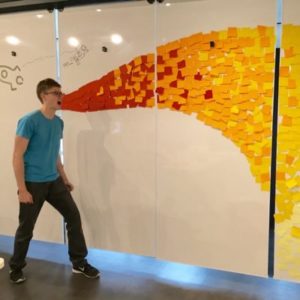 James Rauhut graduated from A. J. Moore Academy in 2011, and he began pursuing his bachelors of business administration in management information systems at University of Texas. In 2013, he was a recipient of the 3rd and 4th year MAC Scholarship. James is currently a designer and front end developer at IBM Design.
James Rauhut graduated from A. J. Moore Academy in 2011, and he began pursuing his bachelors of business administration in management information systems at University of Texas. In 2013, he was a recipient of the 3rd and 4th year MAC Scholarship. James is currently a designer and front end developer at IBM Design.
For many students, such as James, the MAC Scholarship can serve as reassurance or a buffer from taking out student loans.
“The MAC Scholarship allowed me not to worry so much about the financial aid. There’s always this looming debt that causes stress while you’re in college,” James said. “So for each scholarship you are able to receive, it feels like a blessing, and there’s a little less stress in the back of your mind.”
James focused his attention more on making sure he was prepared for a career that would pay off loans. Although he has a business degree, he found his skills were better applied in digital media and web design; so fortunately, paying off debt was not a struggle because he was able to pair his degree with strong, marketable skills.
“The best advice I could give is dedicate your time in college to finding a career that you both love and will pay off that debt instead of trying to be frugal with the financial aid,” James said.
Lisa Byrd
2003 MAC Scholarship Recipient
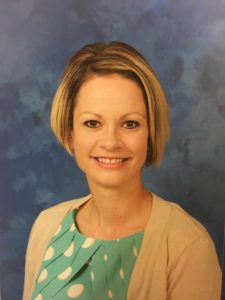 Lisa Byrd is a counselor at Mart Independent School District where she works with many students who would be first time college students. She earned her bachelor’s degree at University of Texas in English after transferring from MCC and receiving the 3rd and 4th year MAC Scholarship in 2003. She later earned her master’s degree from Tarleton.
Lisa Byrd is a counselor at Mart Independent School District where she works with many students who would be first time college students. She earned her bachelor’s degree at University of Texas in English after transferring from MCC and receiving the 3rd and 4th year MAC Scholarship in 2003. She later earned her master’s degree from Tarleton.
“A lot of our kids are first time college students, so it’s crucial to have somebody who can help them make that jump and to give them options,” Lisa said. “The idea is to appreciate all of the kids for what their path might be.”
Lisa comes from a large family where their parents did not attend college or have the ability to pay for a college education. The responsibility of funding college was on Lisa, so scholarships were the difference between whether or not education was a possibility.
At the MAC Scholarship Ceremony, Lisa was able to create a relationship with her donors—Mr. and Mrs. Bernard and Audre Rapoport.
“I didn’t understand at the time as a 20 year old the magnitude of the MAC scholarship and what it meant,” said Lisa. “I started to realize that Mr. Rapoport was actually there at the MAC ceremony. They called me up, and I went to shake his and his wife’s hand. He made a joke about pretty girls going to University of Texas and everyone laughed.”
The transition from the small town of Mart to Austin was not easy for Lisa. She recalled the culture shock of attending classes on top of working in downtown, riding the city bus, learning a new college environment and trying to fit in with her peers.
“I was thinking I don’t belong here, but then I looked up, and I realized I was looking at the Bernard and Audre Rapoport Building,” Lisa said. “So I thought, if he shook my hand and thinks I can do it, then surely I can. Even more than the money, he was a big motivator when he sent me a book and we corresponded at least once a year.”
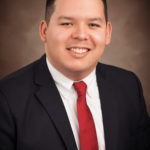 Rolando Rodriguez was raised in Waco, TX, and he graduated with honors from Baylor University with a bachelor of arts in professional writing & rhetoric. He has recently joined Waco Foundation as the MAC & Scholarship Coordinator as an advocate of higher education for all students in McLennan County regardless of financial circumstance. His role with the Foundation is to help McLennan County students with the financial aid process for college.
Rolando Rodriguez was raised in Waco, TX, and he graduated with honors from Baylor University with a bachelor of arts in professional writing & rhetoric. He has recently joined Waco Foundation as the MAC & Scholarship Coordinator as an advocate of higher education for all students in McLennan County regardless of financial circumstance. His role with the Foundation is to help McLennan County students with the financial aid process for college.
